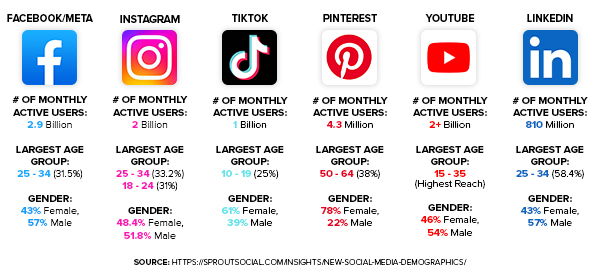Don't be Anti-Social:
Why B2B Brands Need a Social Media Presence


Published on: March 23, 2023
Around the globe, people are having conversations, sharing ideas and engaging in experiences on social media. What about your brand? Does your company interact or watch from a distance? By choosing not to participate on social media platforms, you may be missing out on opportunities to not only grow your business but make a lasting impact.
5 Reasons for B2B Brands to Use Social Media
Companies can gain additional traction through employee advocacy. By empowering their people to act as ambassadors for the brand on social media, the company becomes more tangible and personal as it starts being associated with people, not just products or services. In a Sprout Social study, 72% of consumers said they feel more connected to a brand when employees use social media to share information. On top of that, almost two thirds (65%) say when a CEO uses social regularly it feels like real people run the business. For this reason, social media is crucial for strengthening customer relationships and building loyalty.
This is some filler content
If you step back and look at your content—blogs, videos, sales assets, social posts—would you see a connected story, or a collection of one-off...
MoreEver feel like your buyer personas are useless? You’re not alone. Too many B2B marketers rely on demographic snapshots—age, job title, geography—to...
More2026 isn’t just another year of more tech and more automation. It’s the year B2B marketing gets human again. While AI and analytics will dominate...
MoreComplete the form and we'll connect with you right away.
You are now in accessibility mode. To restore settings to default, click the accessibility icon on the right hand side.